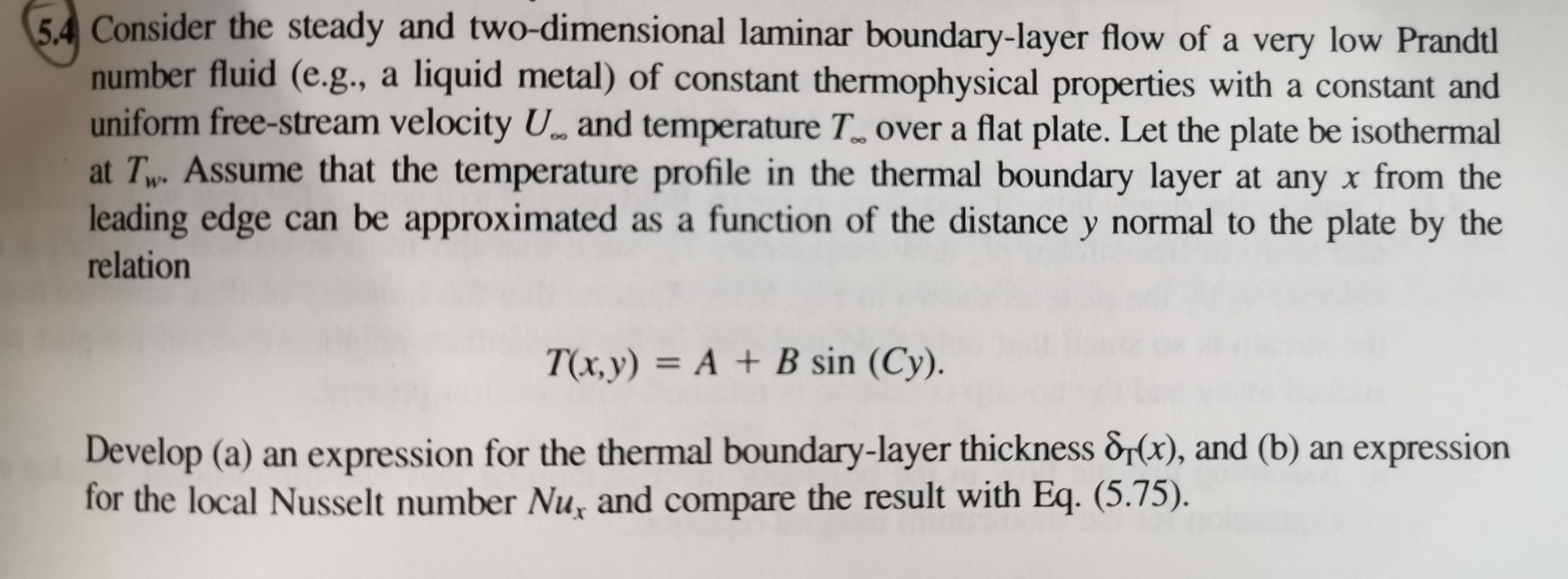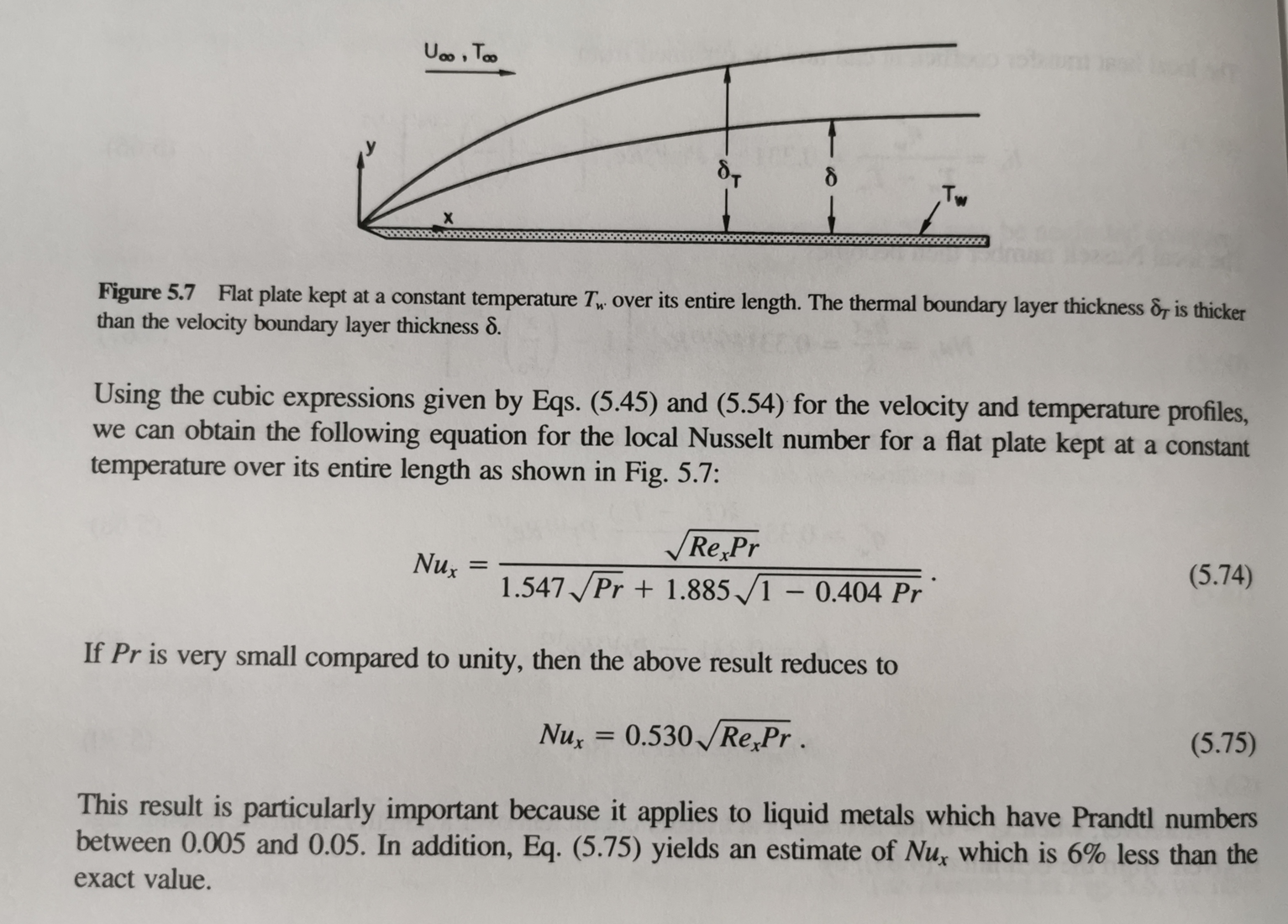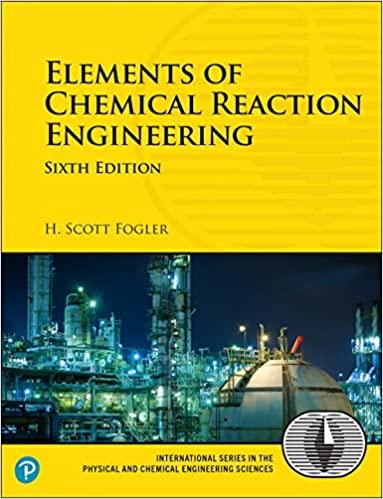Answered step by step
Verified Expert Solution
Question
1 Approved Answer
5.4 Consider the steady and two-dimensional laminar boundary-layer flow of a very low Prandtl number fluid (e.g., a liquid metal) of constant thermophysical properties


5.4 Consider the steady and two-dimensional laminar boundary-layer flow of a very low Prandtl number fluid (e.g., a liquid metal) of constant thermophysical properties with a constant and uniform free-stream velocity U., and temperature T over a flat plate. Let the plate be isothermal at Tw. Assume that the temperature profile in the thermal boundary layer at any x from the leading edge can be approximated as a function of the distance y normal to the plate by the relation T(x, y) = A + B sin (Cy). Develop (a) an expression for the thermal boundary-layer thickness &(x), and (b) an expression for the local Nusselt number Nu, and compare the result with Eq. (5.75). U, Too ST Figure 5.7 Flat plate kept at a constant temperature T over its entire length. The thermal boundary layer thickness &r is thicker than the velocity boundary layer thickness 8. 8 Using the cubic expressions given by Eqs. (5.45) and (5.54) for the velocity and temperature profiles, we can obtain the following equation for the local Nusselt number for a flat plate kept at a constant temperature over its entire length as shown in Fig. 5.7: Nux Re Pr 1.547 Pr + 1.885/1 - 0.404 Pr If Pr is very small compared to unity, then the above result reduces to Nux = 0.530 Re Pr. = (5.74) (5.75) This result is particularly important because it applies to liquid metals which have Prandtl numbers between 0.005 and 0.05. In addition, Eq. (5.75) yields an estimate of Nu, which is 6% less than the exact value.
Step by Step Solution
There are 3 Steps involved in it
Step: 1
a To find an expression for the thermal boundarylayer thickness we need to determine the distance at which the temperature deviates significantly from ...
Get Instant Access to Expert-Tailored Solutions
See step-by-step solutions with expert insights and AI powered tools for academic success
Step: 2

Step: 3

Ace Your Homework with AI
Get the answers you need in no time with our AI-driven, step-by-step assistance
Get Started


